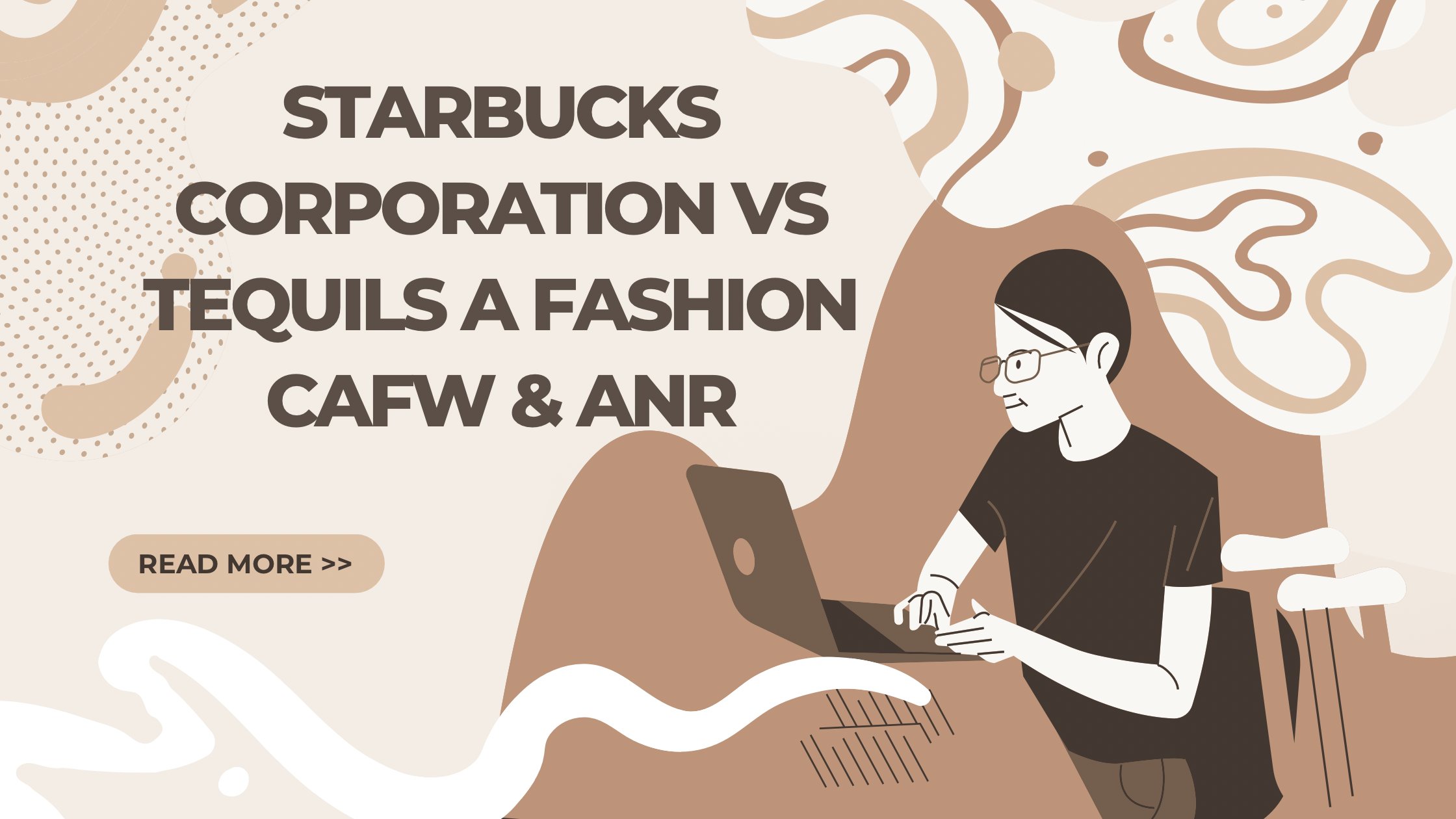STARBUCKS CORPORATION Vs TEQUILS A FASHION CAFW & ANR
In trademark infringement cases the party accused of trademark infringement may be able to defeat infringement proceedings if it can establish a valid exception (example is comparative advertising) or defence to attack and cancel the underlying registration upon which the proceedings are based. Other defences in trademark infringement include genericness, functionality, abandonment and fair use.

Introduction:
“Trademark infringement means violation of the exclusive rights attached to the trademark without getting authorized access to the owner or any licensee. Infringement of trademark may occur when party means infringer uses trademark which is identical or similar (confusing) to a trademark owned by another party, in relation to product or services which are identical or similar to the product or services which the registration cover.”
“An Owner of the trademark has right to commence legal proceedings against a party which infringes its registered trademark.
As per Paris convention even if respective trademark and product or services are entirely dissimilar trademark will still be infringed due to well-known pursuant. In some Jurisdiction a party other than owner (licensee) may be able to pursue trademark infringement proceedings against an infringer if the owner fails to do so.”
Factors to determine Trademark Infringement:
Court consider various factor to determine trademark infringement these are
-
Whether the plaintiff has a valid trademark, A trademark can be valid because it is officially registered, or because it has a claim under common law
-
Whether the trademark is being used by the defendant.
-
Whether the defendant’s use of the mark is in commerce
-
Whether that use is connected to the sale offer, distribution or +advertising of a product.
-
Whether the defendant’s use of the trademark is likely to create confusion in the mind of customer.
Though these factors are in debate but these are the most immediate factor which leads to trademark infringement.
Consumer confusion: .
Where the respective marks or products or services are nor nearly identical, similarly will generally be assessed by reference to whether there is a likelihood of confusion that consumers will believe the products or services originated from the trademark owners
In the given case named as STARBUCKS CORPORATION Vs FASHION CAFW & ANR, there is similar trademark infringement, defendant used identical or similar trademark for plaintiff ask for interim relief and compensation. Let’s discuss the case Judgement in detail.
Case Analysis
Fact of the case:
Plaintiff is a company organised and existing under the laws of the state of Washington, USA. In 1985m Plaintiff Company was incorporated as STARBUCKS CORPORATION and in the year 2019, when the suit was filed, it had 30,626 retail stores in 80 countries and territories around the world.
Despite receipt of the cease- and desist notice by the plaintiff as well as reminder and negotiation talk telephonically, defendant continued to sell the impugned products, having no option the plaintiff filed the suit
This suit has been filed by the plaintiff seeking decree of permanent injunction restraining the defendants, their partner from infringing partner’s registered trademark named as “FRAPPUCCINO” either alone or with any prefix or suffix or with any confusing and deceptively trademark in relation to their goods and service and business.
In the given case Plaintiff also asked for interim damages and delivery up of impugned goods, menu cards etc. Decree for rendition of accounts of profit earned by the defendant by using registered word “FRAPPUCCINO” marks is sought as an alternative relief of damages.
On 03-09-2019 this court granted an ex parte and interim injunction in favour of the plaintiff and against the defendant.
As per the order defendant No 1 and 2, their partner, proprietors, licensees, franchisees, representatives are signature not verified, thereby restrained from using in any manner FRAPPUCCINO mark on any of the products sold by them.
On 28 November 2019, on service defendant didn’t appear and court proceeds ex-parte,
Court observation:
The Bench observed that the Plaintiff’s FRAPPUCCINO trademark have acquired good reputation and goodwill in India, Defendant used identical marks with similar goods and the trade channels and the customer base are also common. Therefore the triple identity test is satisfied.
The claim for damages by Plaintiff was based on presumptions that the defendant would have sold 400 beverages in the relevant period. But the bench observed the entire claim was based on presumptions and no evidence was led to support the claim of damages. So court was not able to award the damages.
Court provided notional damages for the suit as it cannot lose sight of the fact that defendant have been found guilty of infringement of trademark.(Notional damages precedent taken from the judgement on Indian performing right society v. Debashis Patnik).
Judgement:
Decree of damages was passed in the favour of the plaintiff and against the defendant for sum of Rupees 200000 and cost of 9,60,100/- was awarded in favour of the plaintiff and against the defendant. “Court provided only notional damages for the suit it cannot lose sight of the fact tht defendant have been found guilty of infringement of trademark.”
Conclusion:
In trademark infringement cases the party accused of trademark infringement may be able to defeat infringement proceedings if it can establish a valid exception (example is comparative advertising) or defence to attack and cancel the underlying registration upon which the proceedings are based. Other defences in trademark infringement include genericness, functionality, abandonment and fair use.
written by:
Priyanshu Jain.












